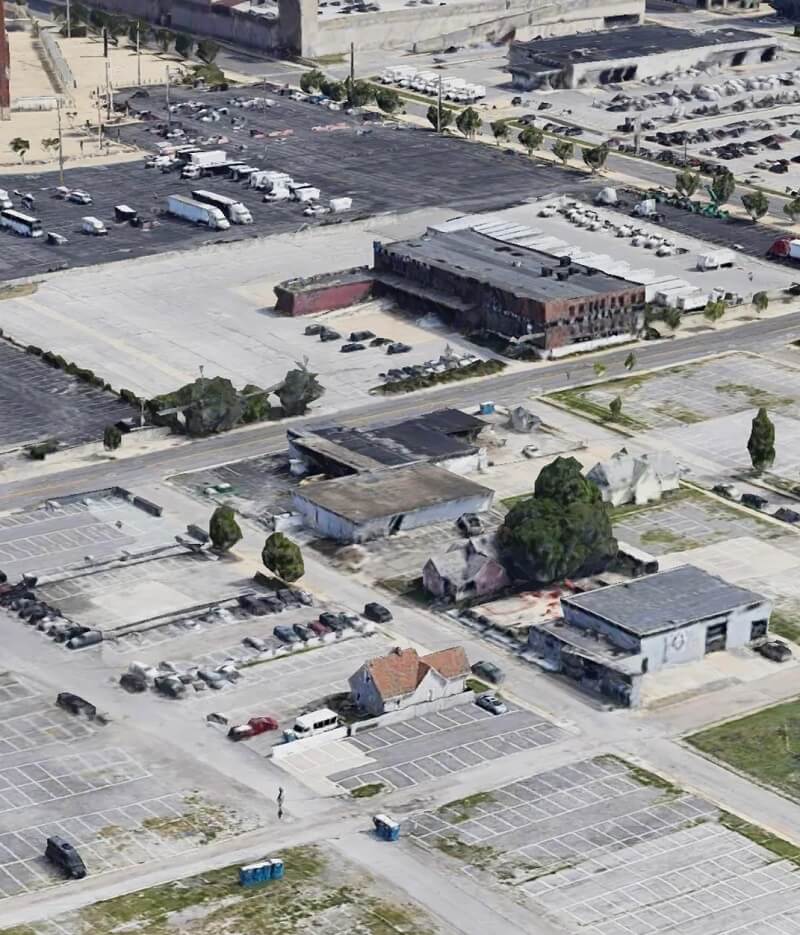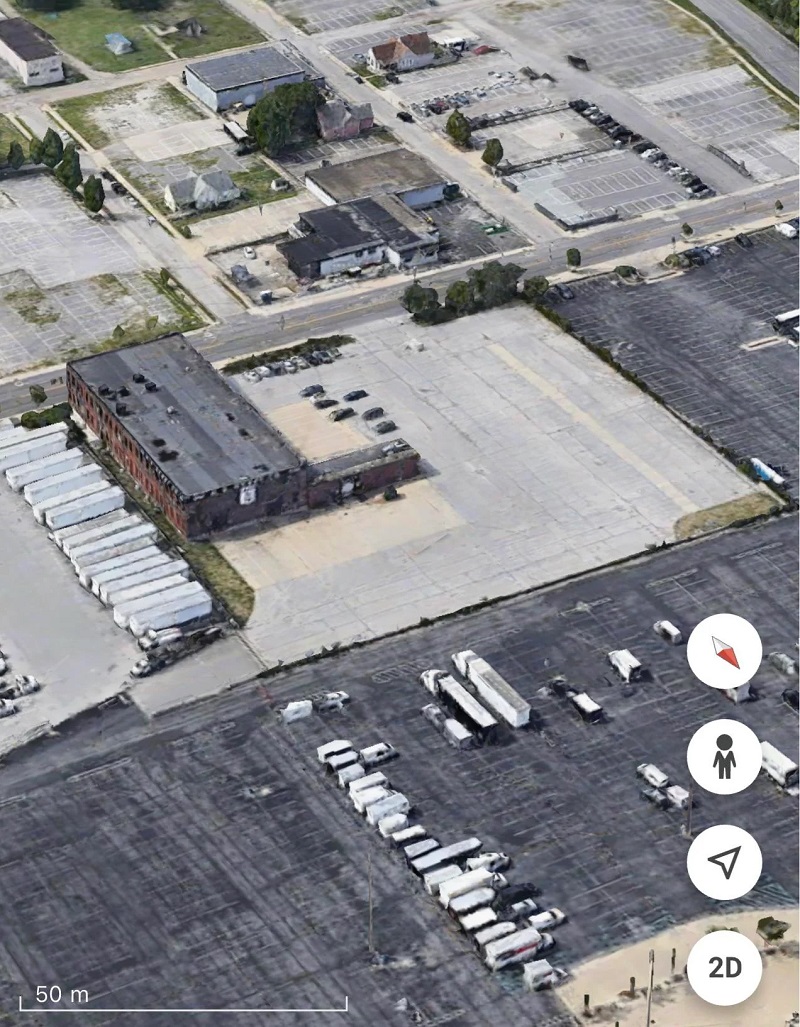One Redditor recently posted a photo of a house in the middle of a massive parking lot in Indianapolis to the r/UrbanH*** subreddit, prompting a predictably disgusted response from the subreddit's other members.
The original poster then added some context to the photo, writing: "This house is well over 100 years old and the backstory is The Colts stadium, which was built in 2008, was constructed over a historic neighborhood … many homes were demolished for parking [but] the people who refused the payment for their house stayed."


There are actually two houses, if you look closely enough. Little other information about them seems to exist on the internet outside of Zillow pages confirming they are residential and Google Maps imagery showing one has a sign warning its nearby parking is for tenants only. But it is well documented that the development of the Indianapolis Colts' Lucas Oil Stadium displaced and priced out a large number of longtime working-class residents of the city's Babe Denny neighborhood.
Much of that development came in the form of new parking lots, which literally flattened neighborhoods and turned them into urban heat islands. In the United States, almost all of which is disastrously dominated by car infrastructure, this type of thing is sadly not uncommon.
We often think about how much planet-overheating air pollution cars create — but we tend to think less about the sheer amount of space that car infrastructure takes up and how much that space is necessarily ruined with heat-trapping surfaces, noise pollution, and a lack of greenery. Especially when mass transit can typically do the job much more effectively and with less resulting pollution.
The other members of the r/UrbanH*** subreddit were understandably not thrilled to see the clear visual representation of a once vibrant neighborhood destroyed in service of more parking.
"It's like the movie Up except there are no balloons, no adventure, and not even any big buildings. It's just slow, sad decay," wrote one commenter.
"This is sad. From a neighborhood to a s***** and unkept parking lot. What a win," wrote another.
"You can see where the original streets were and I can imagine all the houses just like this one all up and down several blocks. All destroyed for a car park used once a week at best," a third commenter lamented.
Join our free newsletter for easy tips to save more, waste less, and help yourself while helping the planet.









